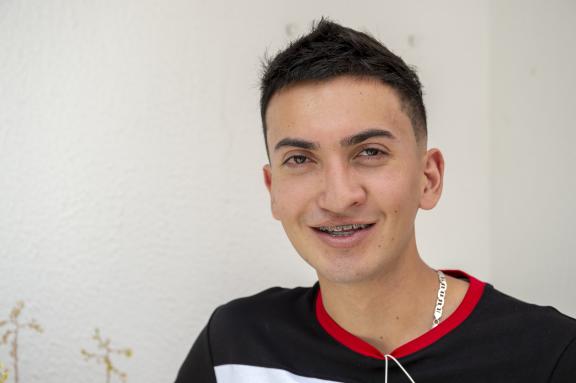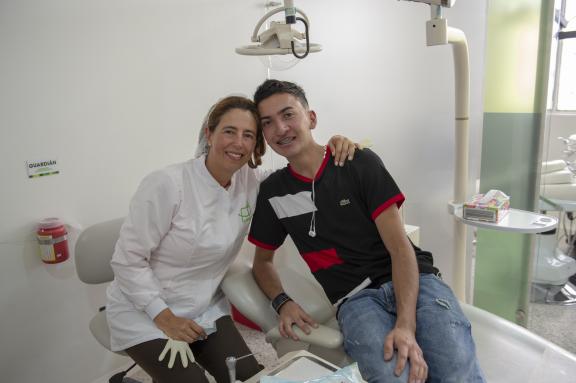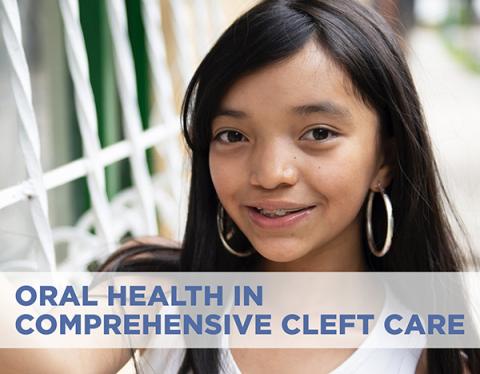Setting essential standards on oral health and dental care for children born with clefts
FDI has teamed up with oral health non-profit Smile Train to integrate regular and focused dental care into the treatment and care plan of children with clefts to help address oral hygiene challenges and prevent oral disease.
Globally, 1 in 700 children are born with a cleft lip and/or palate. A cleft occurs when certain body parts and structures do not fuse together during embryonic development—in many cases, the cause of the cleft lip and/or palate is unknown. Clefts cause significant difficulties eating, breathing, hearing, and speaking. What’s more, cleft patients often suffer from tooth decay, gingivitis, and other oral diseases. Sadly, many children with clefts never receive the reconstructive surgery they need.
Oral health non-profit Smile Train provides training, equipment, and access to cutting-edge technology to ensure comprehensive cleft care services around the world: this includes essential treatments beyond cleft surgery, including nutrition services, orthodontic and general dental care, speech therapy, and emotional support. FDI has teamed up with Smile Train to integrate regular and focused dental care into the treatment and care plan of children with clefts to help address oral hygiene challenges and prevent oral disease.

A young patient perspective
Michael David Contreras is from Bogotá, Colombia, and was born with a cleft lip and palate. He had his first lip surgery at three months old and palate surgery at 12 months old. When he was 10, he had an alveolar bone graft operation and some aesthetic corrections to improve his previous scars. As both a cleft patient and a partially dentate patient, Michael also received full orthodontic treatment.
“I had plenty of support from my parents and they were always very optimistic about my future,” Michael says. “They never once doubted that I could do anything I wanted when I grew up. Despite that, my life wasn’t easy, and I was often made fun of because of my scar and my speech, and people constantly asked me about it, which made me feel different.”
FISULAB, a foundation supported by Smile Train and based in Bogotá, strives to improve the quality of life of patients with cleft lip and palate through comprehensive rehabilitation services. FISULAB is responsible for Michael’s surgery.

“FISULAB means everything to me because it’s allowed me to have a good life and pursue my dreams. I’m so thankful, and their work is important for so many people. Not just for the surgery, but also because they help us have confidence in ourselves and not feel discriminated against. I can’t even imagine what life would be like for someone who doesn’t have access to this treatment and the psychological support.”
In addition to surgery and speech therapy, Michael also received mental health counselling and orthodontic care. He says that the orthodontic care also vastly improved his self-esteem and his overall health. He says that his cleft lip/palate surgery improved his physical and mental well-being and continues to contribute to his development as a person, especially in how he navigates his daily life.
Everyone has a role to play in caring for people born with clefts
FDI and Smile Train are currently finalizing a set of guidelines for oral health professionals and the wider cleft care team to refer to when caring for patients with clefts. The guidelines focus on maintaining optimal oral health for these patients.
The guidelines will be discussed in detail with FDI and Smile Train experts during the Oral Health in Comprehensive Cleft Care webinar on 29 September 2020 at 15:00 BST. Webinar registration is free and open to all.
The Oral Health in Comprehensive Cleft Care project is supported by GSK.

